
Carolyn is the Earth & Climate writer at Science News. Previously she worked at Science magazine for six years, both as a reporter covering paleontology and polar science and as the editor of the news in brief section. Before that she was a reporter and editor at EARTH magazine. She has bachelor’s degrees in Geology and European History and a Ph.D. in marine geochemistry from MIT and the Woods Hole Oceanographic Institution. She’s also a former Science News intern.

Trustworthy journalism comes at a price.
Scientists and journalists share a core belief in questioning, observing and verifying to reach the truth. Science News reports on crucial research and discovery across science disciplines. We need your financial support to make it happen – every contribution makes a difference.
All Stories by Carolyn Gramling
-
 Climate
ClimateCOP28 nations agreed to ‘transition’ from fossil fuels. That’s too slow, experts say
COP28 ended with a historic climate agreement to begin moving away from fossil fuels, but stopped short of mandating phasing them out.
-
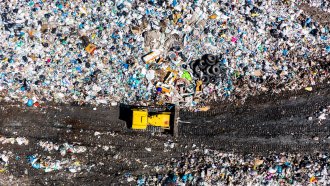 Climate
ClimateCOP28 is making headlines. Here’s why the focus on methane matters
Here’s one takeaway from COP28: Deep cuts to methane are essential to meet the Paris Agreement goals. That’s still possible.
-
 Climate
ClimateHere’s how 2023 became the hottest year on record
The effects of climate change were on clear display in 2023 as records not only broke, but did so by surprising amounts.
-
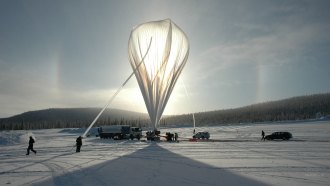 Climate
ClimateA new UN report lays out an ethical framework for climate engineering
The report’s release, which coincides with COP28, weighs the ethics of using technological interventions to mitigate climate change.
-
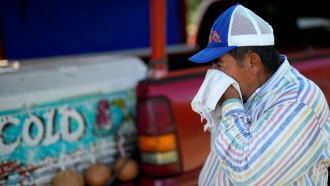 Climate
ClimateThe last 12 months were the hottest on record
The planet’s average temperature was about 1.3 degrees Celsius higher than the 1850–1900 average, a new report finds.
-
 Paleontology
PaleontologyNewfound fossil species of lamprey were flesh eaters
In China, paleontologists have unearthed fossils of two surprisingly large lamprey species from the Jurassic Period.
-
 Chemistry
ChemistryThe development of quantum dots wins the 2023 Nobel prize in chemistry
Moungi Bawendi, Louis Brus and Alexei Ekimov split the prize for their work in creating nanoparticles whose properties depend on their size.
-
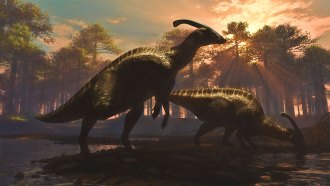 Paleontology
PaleontologyNew computer analysis hints volcanism killed the dinosaurs, not an asteroid
Scientists take a creative approach to investigating what caused the mass extinction 66 million years ago, but the debate is far from settled.
-
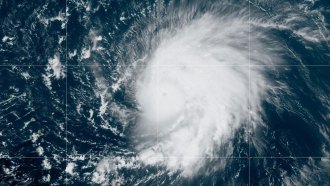 Climate
ClimateWhat’s driving an increasing number of hurricanes to rapidly intensify?
Hurricane Lee is just the latest storm to explode in power in only hours. The phenomenon is linked to a warming world.
-
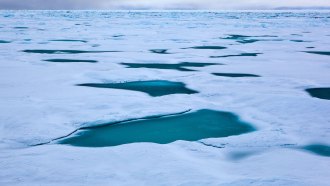 Climate
ClimateArctic sea ice may melt faster in coming years due to shifting winds
A complex dance between Arctic wind patterns and the Atlantic has limited the flow of warmer water north in recent years. That may be about to change.
-
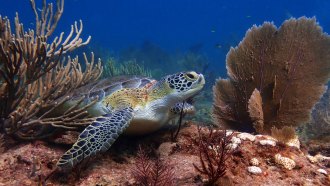 Climate
ClimateExtreme ocean heat off Florida has ebbed. But for marine life, the danger remains
After the recent heat wave, corals have received too much heat too early in the summer, and other sea life could see lingering effects too.
-
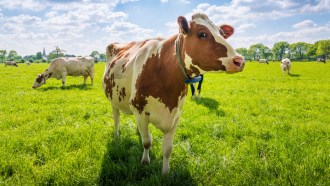 Climate
ClimateCow poop emits climate-warming methane. Adding red algae may help
Adding a type of methane-inhibiting red algae directly to cow feces cut down methane emission from the poop by about 44 percent, researchers report.